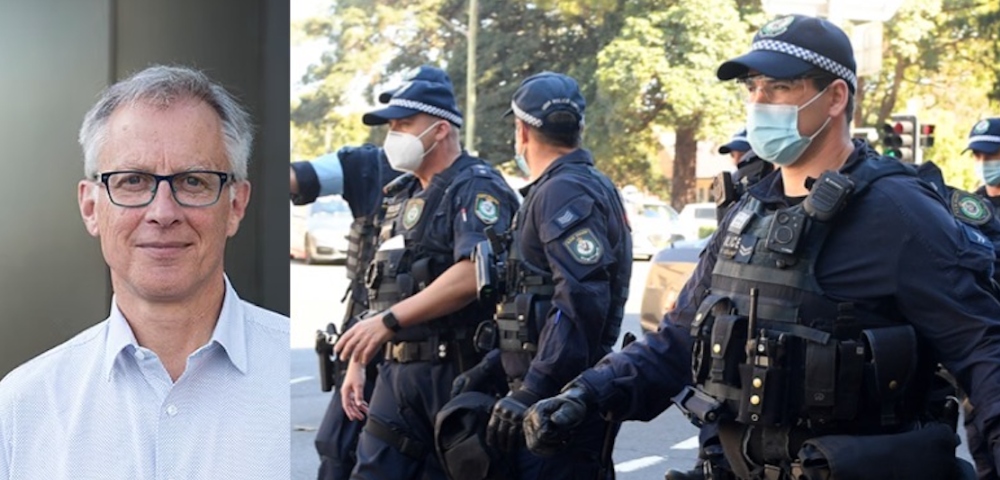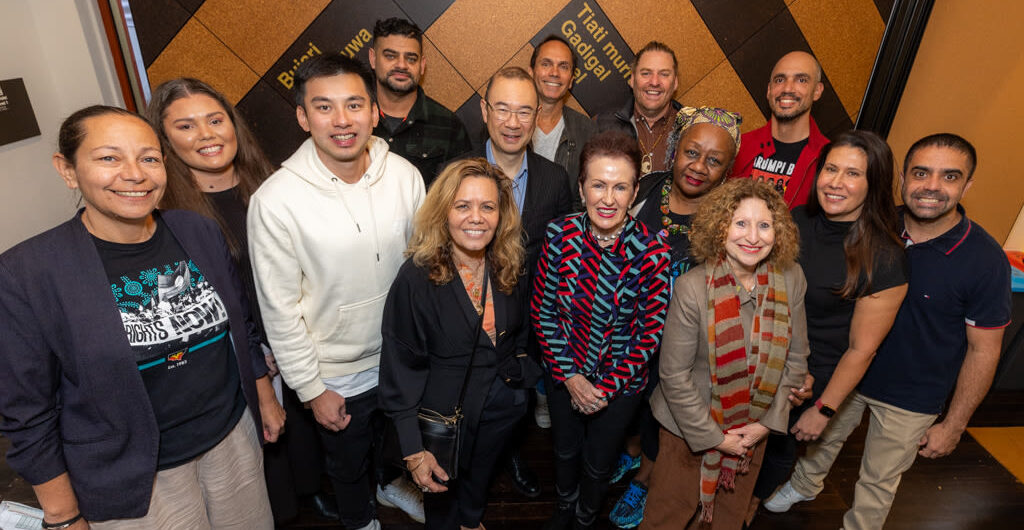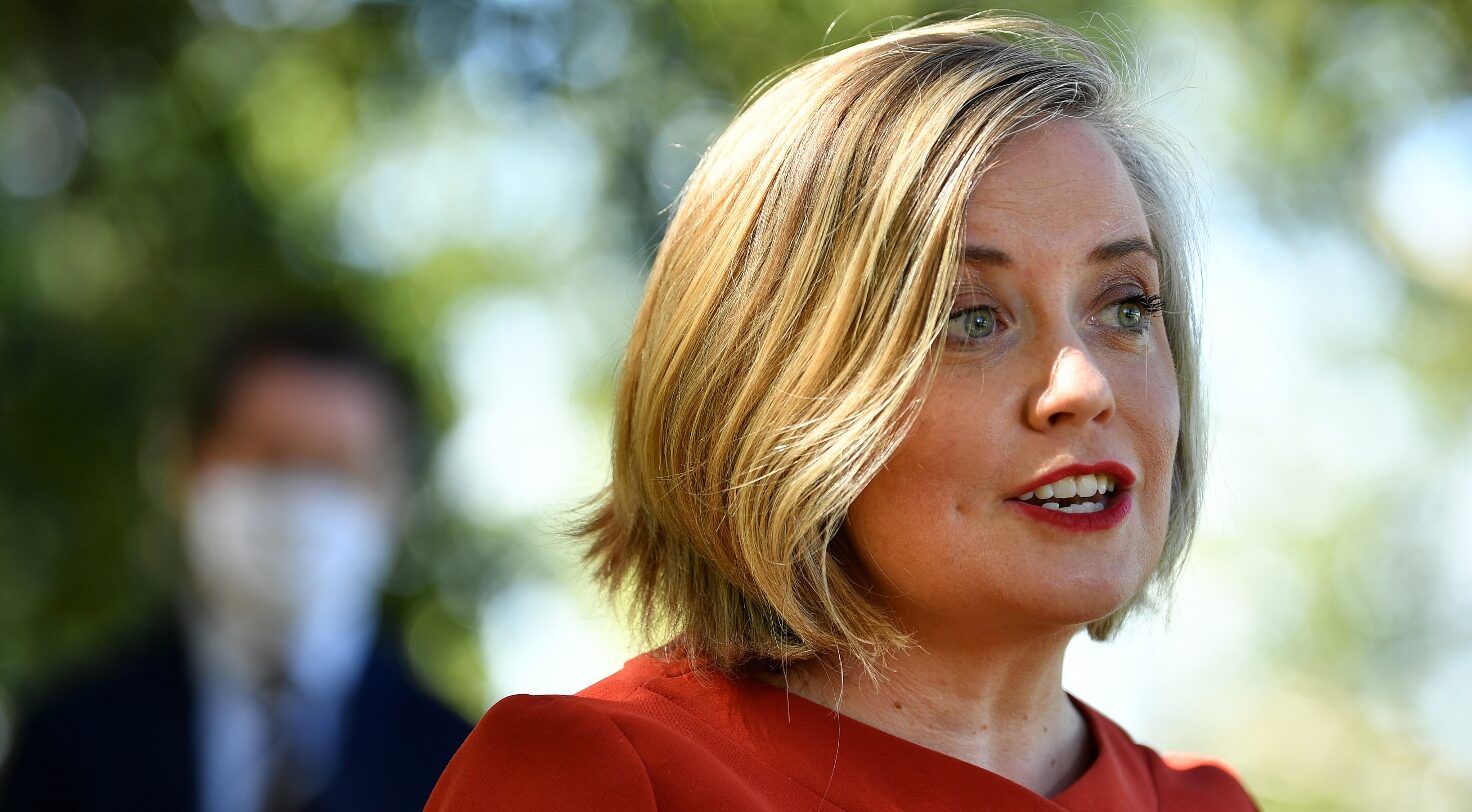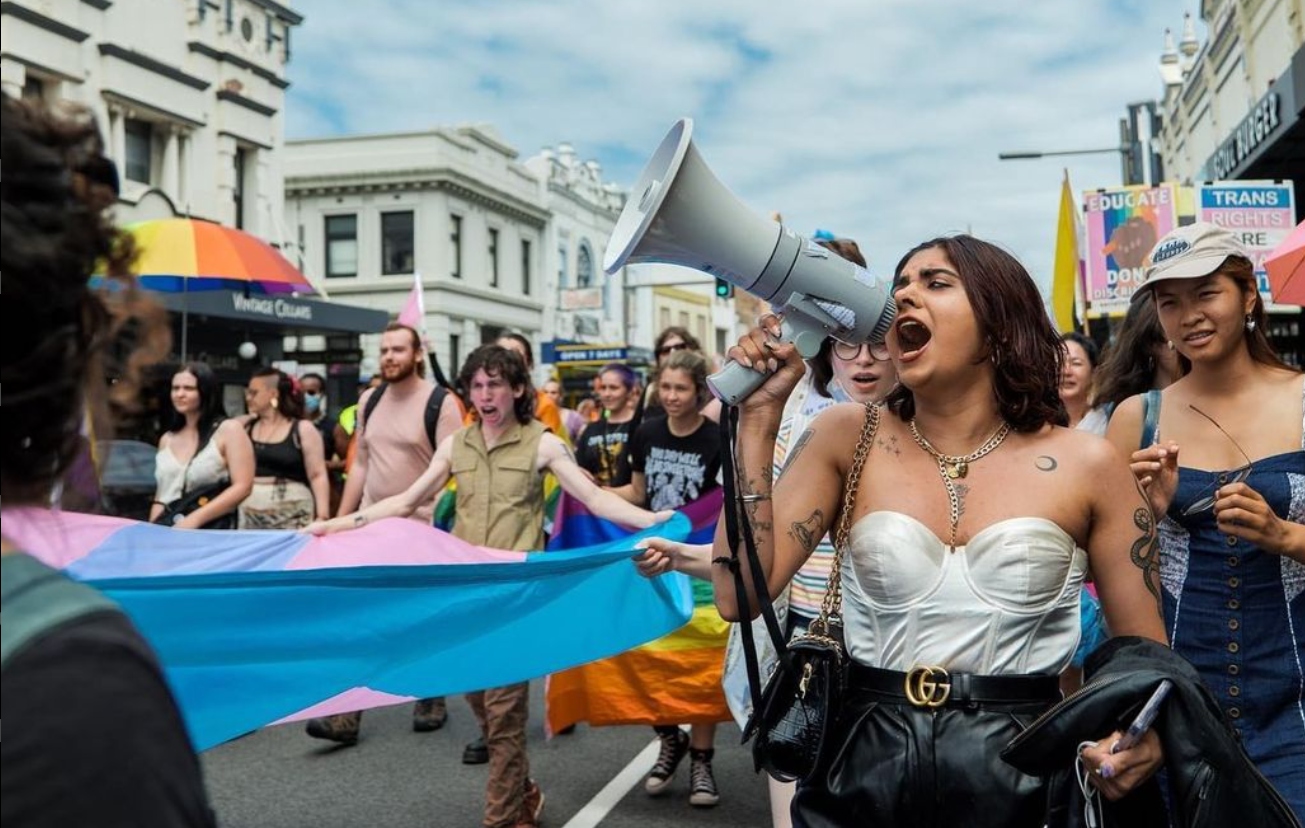

by GRACE JOHNSON
Law professor Simon Rice has won by consent a lawsuit against the state after NSW Police used excessive force against him as he observed a student protest.
Professor Simon Rice, chair of law and social justice at the University of Sydney, was following and observing a student protest on 14 October 2020 when he was violently arrested and pushed to the ground by surrounding police.
The law professor filed a District Court case against the state of NSW in April this year. Between October 2020 and then, Prof. Rice had been pursuing complaints against the police. The civil suit, which took place on September 21, was settled by consent in Prof. Rice’s favour.
The NSW Police responded to Prof. Rice’s initial complaints by saying they had already investigated the issue and there was no problem. The Law Enforcement Conduct Commission (LECC) said it was a police matter and similarly took no further action. Prof. Rice told City Hub that he vacillated on whether to escalate the matter as there were significant costs and risks.
Prof. Rice said, “I ultimately did it because I just don’t think that anybody who behaves badly should feel they can get away with it.”
“It was simply a step to tell the police that they can be held accountable, which makes them stop and think twice,” he continued.
Excessive force used against an observer
Prof. Rice spoke to City Hub and described the events on the day.
“I was standing. I’d been following the protest at a distance, with the police, in fact.”
“When the protest came to a halt on Parramatta Road, I walked through it to the other side and while I was walking through it, the police who had been lining the roads standing back suddenly moved in very aggressively and started attacking the protesters. I saw a police officer attacking a woman and pulling things, her belongings out of her hand, a megaphone and a sign, and I stopped and asked, ‘Why are you doing that?’”
“I was grabbed from behind. Hands were put on my shoulders and I was marched away. And I turned over my shoulder to say, ‘Why are you doing this? What’s happening?’”
“The answer was an officer saying ‘you’re resisting arrest,’ and they kicked my legs up from underneath me, and I fell down. I went to get back up and they pushed me back down again.”
Law Professor Simon Rice was roughly forced to the ground by police as he left the protest. 3 other fines took place alongside this. pic.twitter.com/yBQtYV4xhY
— Honi Soit (@honi_soit) October 14, 2020
Prof. Rice was also fined $1,000 for allegedly breaching the public health orders at the time. Police said he had been acting in “common purpose” with the protestors. Rice contested the fine and police subsequently dropped the charge.
Prof. Rice had been teaching a class about law reform where they studied social movements, public action and protest, and running an extracurricular project where students were researching the laws on protest.
“So I had two reasons to say to different groups of students, ‘here’s an opportunity to see a protest and action,’” said Prof. Rice.
A peaceful student protest
The students were protesting against university fee increases and job cuts. At first, they had gathered across campus in groups fewer than 19 people to avoid breaching the COVID-19 health restrictions at the time, which forbade groups of 20 or above gathering for a “common purpose.” The groups kept a distance and held signs protesting against slightly different issues.
About an hour after the protest began, the groups had combined into a demonstration of over 200 people, who were then chased through Victoria Park by police, including members of the riot squad and police on horseback.
Prof. Rice remarked that the police were clearly not concerned that what they were doing on the day was going to get them in trouble.
“I had a very strong impression that they were spoiling for a fight,” said Prof. Rice. “They had turned up in huge numbers, with riot squads and horses. They had protective vests on.”
“When you gear yourself up like that, when the adrenaline is pumping and the apprehension is high, and the COVID health orders are there, it’s almost a free pass for them.”
“Even though it was just a bunch of students protesting tertiary fees by singing fairly lame chants, they felt a need to use the power they had.”
University response
A statement released by the University of Sydney at the time said they were very “disturbed” by the events that transpired, adding that “we strongly defend freedom of speech and support the right of our students and staff to express their views in a legal, safe and respectful way.”
Sydney Institute of Criminology also released a statement expressing their support for the students protesting on that day and concern about the treatment of Professor Rice. The statement also indicated their disappointment that NSW Police had failed to respond to earlier requests from the Vice Chancellor’s office to discuss these police activities.
The statement noted that these events occurred “against the background of widespread public concern regarding police infringement and suppression of vital democratic rights at a number of recent public protests including Black Lives Matter and climate change protests.”
An open letter signed by more than 100 university staff members said, “universities exist to foster the free and open debate of ideas.”
“In light of the sweeping changes proposed by the government and the university, we are alarmed by the police repression of the fundamental democratic right to free speech.”
Historic use of excessive police force
Prof. Rice also reflected on the unwarranted, and unjustifiable, use of force that day.
“I respect the fact that sometimes use of force can only be contained by use of force. If I’d been lashing out, if I’d had a knife or a gun or using my fists, then I’d have less to complain about.”
“But I was a man in a suit, asking police why they were behaving badly.”
When asked about what he hopes will come of the lawsuit, Prof. Rice said he hoped to make a small statement about the fact that police can’t act with impunity.
“It may be fairly futile. It could be sort of shaking your fist at the mountain. What will come of it? I don’t know. But I think it adds a little bit to the continuing campaign for a cultural change.”
A spokesperson from NSW Police told City Hub that they are not in a position to comment on this particular situation nor on their historic use of excessive force against student protestors.










My applause for the professor of law! What use is a law if it is not adhered to? What use of the law enforcers are not held accountable for properly implementing the law? Thank you for making the police accountable. You set a very welcome and importance model in this time when peaceful protesters are increasingly handled with disdain. Police cannot get away with impunity when they commit violence against law abiding citizens.
I was also walking through the army of police on this day as they were blocking footpaths etc and their overwhelming presence was excessive given the small number of protesters. The actions against Professor Price were completely uncalled for, as was their presence on the day. I applaud Professor Price for proceeding with the law suit and hope that it gives cause to the police to reflect on this type of unnecessary action.